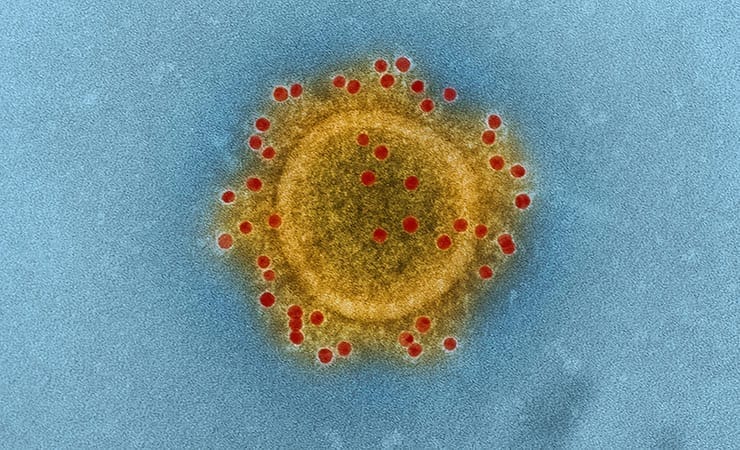Scientists at the University of Illinois, Chicago, have identified a compound that effectively inhibits an enzyme crucial to the viruses that cause Middle East respiratory syndrome (MERS) and severe acute respiratory syndrome (SARS).
The compound appears to have a different method of inhibition in each virus due to slight differences in each virus’ enzyme which means finding other compounds that inhibit both may be difficult.
The enzyme, known as papain-like protease (PLpro) is considered essential to the coronavirus lifecycle and has been a promising target for years for drugs against SARS coronavirus (SARS-CoV). There are currently 2 groups of known SARS-CoV PLpro inhibitors. The researchers tested four compounds (2 each from 2 groups) for their ability to inhibit MERS-CoV PLpro.
“The surprising result we got was that four well-validated SARS-CoV PLpro inhibitors were completely ineffective against MERS-CoV PLpro,” says Hyun Lee, an author on the study.
Lee and her colleagues used x-ray crystallography to examine and compare the structure of these two enzymes and found them to be extremely similar with only minor differences.
“Even when we solved the crystal structure of MERS-CoV PLpro, we observed that SARS and MERS PLpro share very similar overall structures including catalytic sites. However, after we closely examined the structural difference further, it was clear that there was a significant difference in blocking loop 2 that played a crucial role in SARS-CoV PLpro inhibitor binding,” says principle investigator Michael Johnson.
Once they discovered that none of the SARS-CoV PLpro inhibitors were effective, the researchers conducted a high-throughput screening of a 25,000-compound library of antimicrobials to see if any could inhibit both PLpro enzymes and got a hit. When they analyzed the mechanism of inhibition of the compound, they discovered it had a different mode of action for each.
“The important implications of our findings would be inhibitor recognition specificity of MERS-PLpro is different from that of SARS-PLpro even though the overall structures of the whole protein and catalytic sites are very similar,” says Lee. “Basically, we need to discover different types of inhibitors for MERS-CoV PLpro.”
MERS was first reported in Saudi Arabia in 2012 and has since spread to twenty different countries, resulting in 837 infections with 291 deaths to date. The unusually high case-fatality rate (CFR) of MERS-CoV infections (~35%) is alarming as it far exceeds that of all other known human coronaviruses, including SARS-CoV, which caused a fatal global outbreak in 2003, resulting in 800 deaths (~10% CFR).
There is still no effective therapeutic available against either MERS-CoV or SARS-CoV. Therefore, developing treatments against both coronaviruses is very important, say Lee & Johnson.
Source: American Society for Microbiology, adapted.



